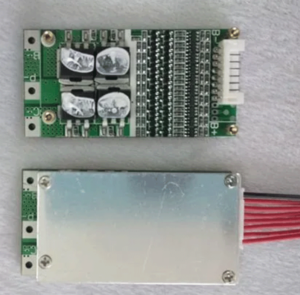1. Battery status monitoring:
– Voltage monitoring: BMS can monitor the voltage of each single cell in the battery pack in real time. This helps detect imbalances between cells and balances charging to avoid overcharging and discharging some cells.
– Current monitoring: BMS can monitor the current of the battery pack to estimate the state of charge (SOC) and capacity (SOH) of the battery pack.
– Temperature monitoring: BMS can detect the temperature inside and outside the battery pack. This is to prevent overheating or overcooling, and to aid in charge and discharge control to keep the battery functioning properly.
2. Battery parameter calculation:
– By analyzing data such as current, voltage and temperature, BMS can calculate the capacity and power of the battery. These calculations are done through algorithms and models to provide accurate battery status information.
3. Charging management:
– Charging control: BMS can monitor the charging process of the battery and implement charging control. This includes the tracking of the battery charging state, the adjustment of the charging current, and the judgment of the end of charging, etc., to ensure the safety and efficiency of charging.
– Dynamic current distribution: among multiple battery packs or battery modules, BMS can realize dynamic current distribution according to the state and demand of each battery pack, so as to ensure the balance between battery packs and improve the efficiency of the overall system.
4. Discharge management:
– Discharge control: BMS can effectively manage the discharge process of the battery pack, including monitoring the discharge current, preventing over-discharge, avoiding battery reverse charging, etc., to prolong battery life and ensure discharge safety.
5. Temperature management:
– Heat dissipation control: BMS can monitor the temperature of the battery in real time and take corresponding heat dissipation measures, such as fans, heat sinks or cooling systems, to ensure that the battery operates within a suitable temperature range.
– Temperature alarm: If the battery temperature exceeds the safe range, the BMS will send out an alarm signal to take timely measures to avoid safety accidents such as overheating damage or fire.
6. Fault diagnosis and protection:
– Fault warning: BMS can detect and diagnose potential faults in the battery system, such as battery cell failure, battery module communication abnormality, etc., and provide timely repair and maintenance by alarming or recording fault information.
– Maintenance and protection: BMS can provide battery system protection measures, such as over-current protection, over-voltage protection, under-voltage protection, etc., to prevent battery damage or failure of the entire system.
These functions make the battery management system (BMS) an indispensable part of battery applications. It not only provides basic monitoring and control functions, but also prolongs battery life, improves system reliability, and ensures safety through effective management and protection measures. and performance.





